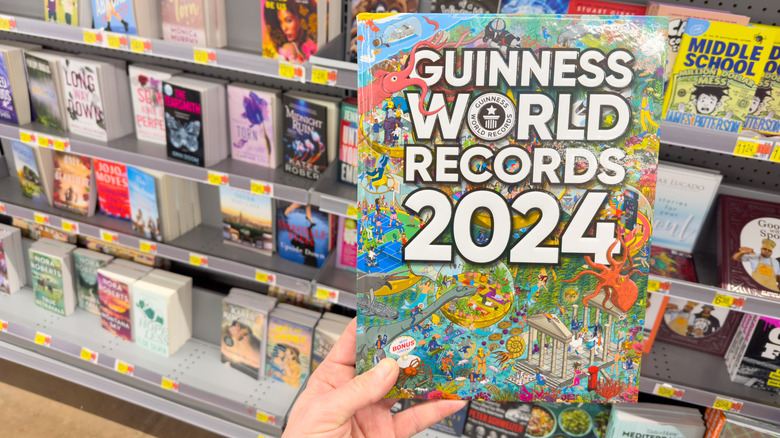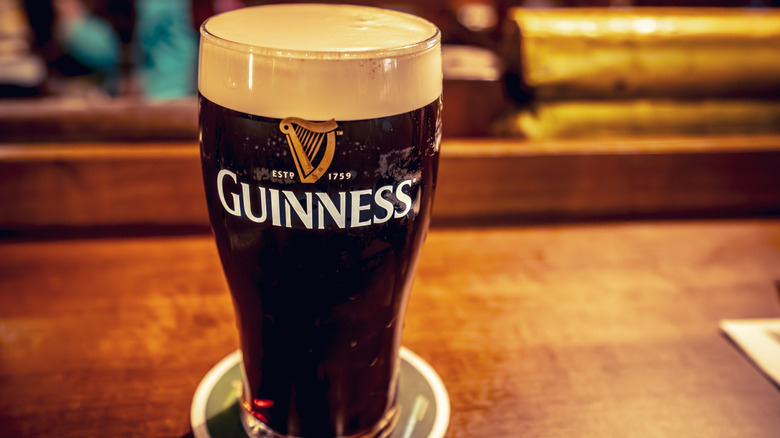Were Guinness World Records Named After The Beer?
We may receive a commission on purchases made from links.
For nearly 70 years, the Guinness World Records book has annually documented the biggest, weirdest, and most impressive achievements across all conceivable fields, including food and drink. Cataloged accomplishments such as the world's longest charcuterie board and the fastest time to drink a Capri Sun can be found in the Records book and its corresponding website. If your achievement can be measured, challenged, verified, and standardized, the organization will consider your feat for documentation as a world record. Guinness World Records perhaps has an affinity for records related to alcohol, as the World Records book was created by an employee of Guinness Brewery.
The managing director of the Guinness Brewery, Sir Hugh Beaver, conceived of the records book after being frustrated by his inability to resolve a trivia disagreement while out hunting birds. Sir Hugh believed that having a book on hand at local pubs could settle these types of arguments and draw people to the bar — and draw more attention to Guinness beer.
The original copies of the Guinness World Records book could only be found in pubs across England, savvily printed with water-repellent covers to protect the books from spilled beer. The books, distributed for free as a promotion for Guinness, were so popular that pub patrons often stole them. Sensing a booming business opportunity, Sir Hugh teamed up with the McWhirter twins, who were sports journalists, to create the first commercial edition of the Guinness World Records book. That first edition, then known as the Guinness Book of Records, reached U.K. bookstores in late 1955 and was an instant success.
Guinness beer does not own Guinness World Records
If you've ever wanted to see if you can make the world's largest pizza, Guinness World Records is there to document your journey. Just don't expect your accomplishment to be paired with a perfect pint of stout. Despite Guinness's connection to the invention of the World Records, the beer brand does not currently own a stake in the organization that shares its name.
Guinness beer (which merged with the Grand Metropolitan brand in 1997 to form Diageo) owned the Records brand until 2001 when it was sold to Gullane Entertainment. It then shuffled through a series of owners over the next seven years through various mergers and acquisitions. Since 2008, the Guinness World Records brand has been maintained by The Jim Pattison Group, a Canadian advertising, fleet management, and packaging conglomerate that also owns Ripley Entertainment Inc. of "Ripley's Believe it or Not!" fame. Ripley is also managing the creation of a new Guinness World Record franchise, a series of attractions allowing visitors to attempt to break or set verified records onsite.

